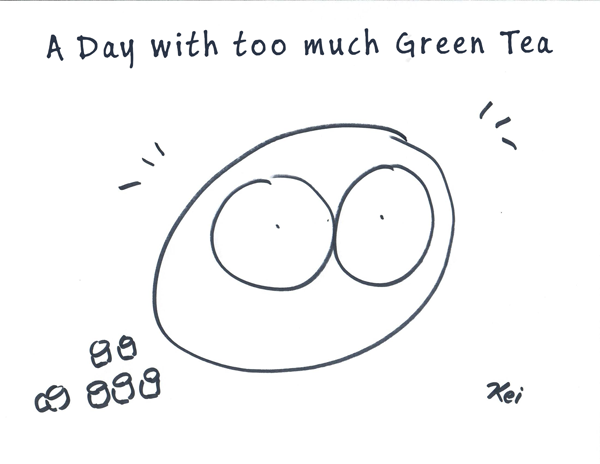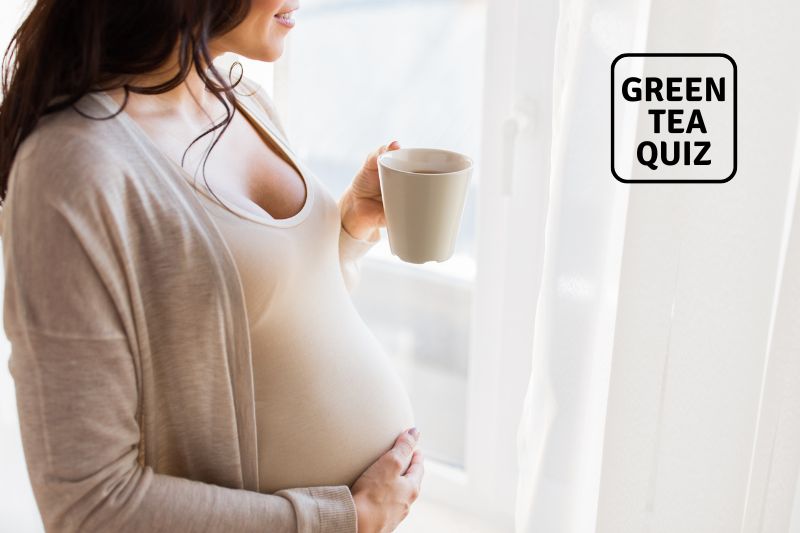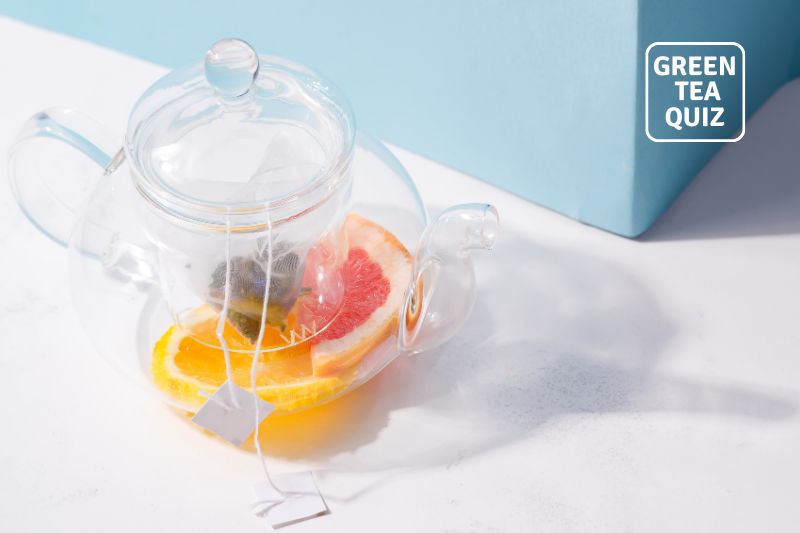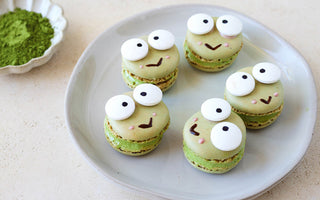Green tea is celebrated worldwide for its numerous health benefits, but have you ever wondered if you can eat the leaves instead of just brewing them? Some health enthusiasts claim that eating green tea leaves provides a more potent dose of nutrients, while others warn about potential risks. In this article, we’ll explore the benefits, risks, cultural uses, and the safest ways to consume green tea leaves.
You already know that green tea is a great-tasting, relaxing beverage with numerous health benefits, but can the same be said about eating the tea leaves rather than steeping them into a drink?
This is actually what many tea lovers wonder about.
Well, the answer to the question is, YES!
In fact, if you enjoy drinking Matcha, if you think about it, you are already consuming the tea leaves – you just haven`t brewed them!

Matcha is powdered form of green tea, so if you drink matcha, you are consuming the entire tea leaf.
What Happens When You Eat Green Tea Leaves?
Nutritional Value of Green Tea Leaves
Eating green tea leaves allows you to consume all of their nutrients, rather than just those extracted through brewing. Some of the key compounds include:
-
Catechins & EGCG: Powerful antioxidants that help fight inflammation and oxidative stress.
-
L-Theanine: An amino acid known for promoting relaxation and focus.
-
Fiber & Vitamins: Whole tea leaves provide dietary fiber, vitamin C, and other essential minerals.
Bioavailability Compared to Brewed Tea
When green tea is brewed, only a portion of its nutrients is extracted into the water. Eating the leaves allows you to absorb 100% of the available compounds, making it a more concentrated source of antioxidants and caffeine.
Why Eat Green Tea Leaves Instead of Eating Matcha Powder?
This will be a natural question to ask after realizing that matcha is made from finely pulverized green tea leaves. They are actually made from grinding several green tea leaves, especially young ones – sounds perfect, doesn`t it? However, the problem here is that there might be a chance of overconsuming caffeine since you will be consuming an entire leaf per serving. The tea leaves used for matcha contain slightly higher levels of caffeine than the leaves used for brewing. For all the above reasons, 1/4 or half of the leaf will be enough to use on dishes and drinks.
Then Why Do We Brew the Tea Leaves Instead of Eating Them?
Raw and processed tea leaves are rich in antioxidants, but may be too bitter and difficult to digest. This is why, in general, tea must be brewed. The best way to eat the leaves would be after steeping.
What Are the Risks of Eating Green Tea Leaves?
While consuming green tea leaves can be beneficial, there are potential risks to be aware of.
Fluoride Content: Is It a Concern?
Green tea plants absorb fluoride from the soil, and mature leaves tend to have higher concentrations. While fluoride in moderate amounts is beneficial for dental health, excessive intake can be harmful, potentially affecting bone density and kidney function.
Bacterial Contamination Risks
Since tea leaves are a raw agricultural product, they may contain pesticide residues or bacteria if not properly processed. Eating unwashed or unprocessed tea leaves can expose you to foodborne illnesses.
Caffeine Overload & Side Effects
Green tea naturally contains caffeine, and consuming whole leaves increases the caffeine dose significantly. This can lead to:
-
Increased heart rate
-
Anxiety or jitters
-
Sleep disturbances
Tannins & Digestive Issues
Tea leaves contain tannins, which can cause nausea and stomach irritation if consumed in large quantities. They may also inhibit iron absorption, making it a concern for individuals with anemia.
Can I Eat the Green Tea Leaves in Tea Bags?
This depends on the material of the tea bag and the quality of the tea leaves. Ordinary, the tea in tea bags are only green tea fragments, which you may find dusty when you eat them. Additionally, the tea bags may be made of epichlorohydrin, a type of plastic that prevents the tea bag from tearing easily; however, regardless of its useful quality, this compound will hydrolise when it comes in contact with water, and have been proven to increase the risk of diseases - just like microplastics released into your food and drinks.
The good news is, however, there is no need to fret about this information as there are tea bags that are made from organic and compostable plant materials; and these tea bags usually contain the full tea leaf. In this case, tearing the tea bag and consuming the tea leaves is safe.
Read more about the comprehensive article I wrote about green tea and caffeine here.

What are the Benefits of Eating Green tea leaves?
Green tea leaves are packed with antioxidants from the tea's catechins as well as other vitamins such as vitamins C, B1, and B2. Drinking green tea itself helps with weight loss and cholesterol reduction, improve mental alertness, and relieves digestive issues in the first place, and some studies have even shown that green tea can also reduce heart disease and prevent cancer – this means that eating the actual tea leaves will carry out the benefits in a more concentrated way, and it will definately boost your health!
However, as already mentioned, it is always best to brew the tea leaves first before you enjoy eating them. Try sprinkling them on your meals, especially over rice or salad – they give you all the powerful antioxidants without leaving any behind. Start incorporating this suferfood into your diet today!
Cultural and Culinary Uses of Eating Green Tea Leaves
In some cultures, green tea leaves are not just used for brewing but are also eaten in various ways.
Traditional Japanese Practices
Japanese tea culture includes eating brewed tea leaves, especially premium varieties like Gyokuro and Sencha. These leaves are sometimes mixed with soy sauce or ponzu and served as a delicacy.
Recipes and Ways to Eat Green Tea Leaves
If you want to incorporate green tea leaves into your diet, here are some delicious and safe ways to do so:
-
Matcha Smoothies – Blend powdered green tea leaves with fruits and milk for a nutrient-packed drink.
-
Baking with Green Tea – Add ground tea leaves to cookies, muffins, and cakes.
-
Tea-Infused Seasoning – Grind dried green tea leaves and mix with salt for a unique seasoning.
-
Salad Toppings – Sprinkle finely chopped brewed tea leaves onto salads.
How Often Can I Eat Them?
Best Types of Tea for Eating
Not all green teas are suitable for eating. The best options include:
-
Matcha – Finely ground, shade-grown green tea, designed to be consumed whole.
-
Organic Gyokuro or Sencha – High-quality loose-leaf green tea with minimal pesticide exposure.
-
Fresh, Young Tea Leaves – Less bitter and lower in fluoride.
How Much Should You Eat?
Moderation is key. Consuming a teaspoon or two daily of finely ground green tea (like matcha) is safe, while eating large amounts of whole leaves may lead to digestive discomfort.
Proper Preparation Methods
To minimise risks and enhance flavor:
-
Use organic, pesticide-free green tea.
-
Wash the leaves thoroughly if they are not pre-cleaned.
-
Brew the leaves first to reduce bitterness and potential contaminants.
-
Grind them into powder for easier digestion.

What Are the Safest Ways to Prepare Green Tea Leaves?
Eating green tea leaves in any recipe is perfectly safe; however, if you want to be sure, you can always eat a small amount and see if your body reacts to it. Although not necessary, it is worth to note that it is still best to eat organic green tea leaves to avoid pesticide residues, and always remember that the tea leaves are safer to eat after steeping them.
You might be surprised to learn that serving green tea leaves over a salad is quite tasty. They are an excellent accent to Asian-style salad especially when they are combined with vinegar dressing! Simply sprinkle the tea leaves (sencha) over a salad and pour over the dressing. With time, the leaves will absorb the moisture from the dressing and are made even softer to be enjoyed as a perfect bowl of super salad!

Green Tea Salad
Green tea leaves can also be used as an herb or spice to add an earthy flavor to foods like meatballs, pesto sauce, and omelets. In addition to the earthy flavor, green tea gives these tasty main dishes a health boost.
Japanese people usually use green tea leaves after steeping. They mix the leaves with soy sauce, and serve them with rice.
They also use green tea leaves to make furikake, a type of seasoned dry food which is often used to sprinkled over steamed rice. Gyokuro is most often used for this recipe. Another popular way green tea used for meals is called ochazuke, where green tea is poured over the rice and eaten with fish, seaweed, and/or meat.
A sprinkle of tea leaves is also a great way to dress desserts like cakes, candies, and milkshakes. Matcha powder can be used to flavor breads, cookies, and other baked goods. Matcha and green tea leaves can also be blended into smoothies, even on fruit juices, or taken in capsule form. Without a doubt, green tea is an almighty ingredient!
Check out my published book, “Cook with Green Tea” for more recipes and ideas.
Is There Anyone Who Should Not Eat Green Tea Leaves?
Green tea leaves are safe for most people to consume; however, individuals with certain health conditions should avoid them. If you are allergic to green tea or any other type of tea, avoid consuming the leaves as they may provoke a stronger response than brewed tea.
People with heart conditions or who are sensitive to the effects of caffeine should also avoid green tea leaves, and pregnant or breastfeeding women should consult a physician before eating them. If you are currently taking prescription medications, ask a pharmacist if your medication may interact with green tea.
Whether brewed or prepared for eating, green tea is a delicious beverage with a number of health benefits. With all its different variations, there are endless ways to enjoy Japanese green tea. We guarantee you – it is a journey worth embarking on.
Final Verdict: Should You Eat Green Tea Leaves?
Eating green tea leaves can be safe and beneficial if done correctly. They offer a higher concentration of antioxidants and nutrients, but excessive consumption may lead to fluoride exposure, caffeine overload, and digestive discomfort. The safest options are matcha, high-quality loose-leaf tea, and properly prepared leaves.
If you want to incorporate green tea leaves into your diet, always choose organic sources and consume in moderation.
Get Free Bonus Books

Sign up for free to the Green Tea Club to get advice and exclusive articles about how to choose Japanese Tea, and tips, tricks, and recipes for enjoying Japanese tea.
About the author
Kei Nishida
Author, CEO Dream of Japan
Certification: PMP, BS in Computer Science
Education: Western Washington University
Kei Nishida is a passionate Japanese green tea connoisseur, writer, and the founder and CEO of Japanese Green Tea Co., a Dream of Japan Company.
Driven by a deep desire to share the rich flavors of his homeland, he established the only company that sources premium tea grown in nutrient-rich sugarcane soil—earning multiple Global Tea Champion awards.
Expanding his mission of introducing Japan’s finest to the world, Kei pioneered the launch of the first-ever Sumiyaki charcoal-roasted coffee through Japanese Coffee Co. He also brought the artistry of traditional Japanese craftsmanship to the global market by making katana-style handmade knives—crafted by a renowned katana maker—available outside Japan for the first time through Japanese Knife Co.
Kei’s journey continues as he uncovers and shares Japan’s hidden treasures with the world.
Learn more about Kei









Hi Mark,
Thank you very much for letting us know about it. I am happy to hear that your brain fog is gone.
Have you tried matcha? https://www.japanesegreenteain.com/collections/matcha-powdered-green-tea Matcha does not require you to steep the tea and you consume the entire tea leaf (like you did by cutting the teabag). Here is instruction on how to cold brew matcha: https://www.japanesegreenteain.com/blogs/green-tea-and-health/how-to-cold-brew-matcha
I hope you feel much better, and thank you very much for sharing your comment with us.
I am 75 and had developed brain fog and accidentally discovered green tea and made some iced green tea in July to beat the heat and remarkably my brain fog started clearing up in four days. I have been heating one tea bag and dumping it in a 34 oz cup filled with ice and sip on it constantly when out in the heat. It has been amazing. Yesterday I decided to make iced green tea and thought why not cut the bag open and eat the leaves and did so.. It it amazing how much better I feel and brain fog is gone.